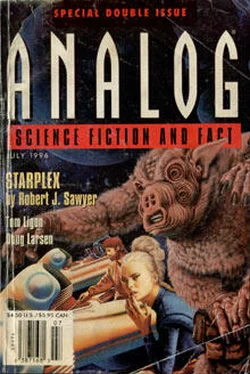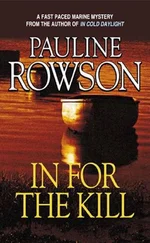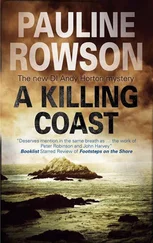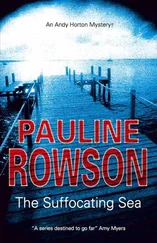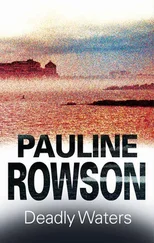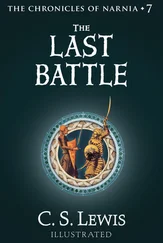Pauline Ashwell - Boneheads
Здесь есть возможность читать онлайн «Pauline Ashwell - Boneheads» весь текст электронной книги совершенно бесплатно (целиком полную версию без сокращений). В некоторых случаях можно слушать аудио, скачать через торрент в формате fb2 и присутствует краткое содержание. Год выпуска: 1996, Издательство: Dell Magazines, Жанр: Фантастика и фэнтези, на английском языке. Описание произведения, (предисловие) а так же отзывы посетителей доступны на портале библиотеки ЛибКат.
- Название:Boneheads
- Автор:
- Издательство:Dell Magazines
- Жанр:
- Год:1996
- ISBN:нет данных
- Рейтинг книги:4 / 5. Голосов: 1
-
Избранное:Добавить в избранное
- Отзывы:
-
Ваша оценка:
- 80
- 1
- 2
- 3
- 4
- 5
Boneheads: краткое содержание, описание и аннотация
Предлагаем к чтению аннотацию, описание, краткое содержание или предисловие (зависит от того, что написал сам автор книги «Boneheads»). Если вы не нашли необходимую информацию о книге — напишите в комментариях, мы постараемся отыскать её.
Boneheads — читать онлайн бесплатно полную книгу (весь текст) целиком
Ниже представлен текст книги, разбитый по страницам. Система сохранения места последней прочитанной страницы, позволяет с удобством читать онлайн бесплатно книгу «Boneheads», без необходимости каждый раз заново искать на чём Вы остановились. Поставьте закладку, и сможете в любой момент перейти на страницу, на которой закончили чтение.
Интервал:
Закладка:
Boneheads
by Pauline Ashwell

Illustration by Bob Eggleton
When boldly going where no man has gone before, which—since Homo sapiens would not evolve for 90,000,000 years and the first member of the expedition had arrived on Indication One only three months ago—described most places in the northern half of the island, and particularly when this involves dense forest, common sense suggests marking the route.
Standing at the junction of two trails (one of which he must have traversed quite recently, without noticing the other) Jonathan Craile (M.D., F.W.C.P) acknowledged ruefully that common sense seemed to have deserted him.
The trails had been made, presumably, by rhynchosaurs—snouty, pigsized reptiles, the commonest large animals on the island. Their comings and goings had beaten the reddish earth as hard as cement.
The hunters who had sometimes acted as Craile’s guides in the wilder parts of the world—some still existed, even in 2089—might have been able to see traces of his moccasins. He could not.
Despite the tropical sunlight it was dark in the forest, which mostly consisted of conifers, with stands of palmlike “cycads” and the occasional tree-fern. The air was warm, still, and silent. Monkeys had yet to evolve, and such birds as were around squawked, when they felt like it, but did not sing.
Craile felt very much alone.
Well, he was alone. Very much so. The total human population of the Earth at this point of time—somewhere around the middle of the Cretaceous—numbered twenty-nine. Twenty-eight of them were either at base, halfway up Observatory Hill, or working near Lake Possible at the southern end of the island. The total area of Indication One was roughly thirteen miles by eight; this northern section took up at least half of the map, so its population density came to about one person per fifty square miles. Craile was the one.
You couldn’t get much more alone than that.
Furthermore, nobody knew where he was. Those members of the expedition currently at base believed him to have gone to Lake Possible, while those at the lake supposed, if they happened to think of him, that he was still at base. Several people who had been at the lake for a couple of weeks were due to return, and Craile had planned to wander in behind them. Nobody was likely to wonder why he should walk seven miles in the morning in order to walk seven miles back a few hours later. It was not as though he had anything more important to do.
The easiest route to and from the lake lay along the seashore. Journeys had to take account of the tides, which meant that, barring accidents, the returning group would reach the base by midafternoon. Craile estimated that it had taken him about four hours to get where he was, but he should be able to retrace his steps in considerably less. Even so, if he wanted to get back unnoticed it was high time to start.
Not that there was any actual rule against going off alone, without stating one’s intentions. Or if there was, no one had thought to mention it to him.
When Craile was hurriedly Displaced a couple of months after the rest of the expedition, he was told that he would be briefed when he arrived. This had meant, in practice, that he got to hear whatever happened to be on his informant’s mind at the time.
Several times the explanation had been inspired by some minor catastrophe, or the threat of one—as when Craile, seeing a number of large fronds spread out in a patch of shade, had wandered across to sit down. He learned, not a moment too soon, that they covered a pit full of poisonous slime. There were about twenty pits scattered around, each one filled with a careful selection of vegetation and then inoculated with one or more strains of bacteria, in order to produce a variety of chemicals; many of them actively poisonous, and none of them good for the health.
Pits and their contents belonged to the six members of the Plastics team. For the next week or so there was always one of them around whenever Craile was out of his hut. Hovering.
What annoyed him most was that they appeared to be genuinely worried, not that he might upset the production of monomers that they needed for their work, but that he might break one of his poor old legs. Or get a nasty rash on his poor old skin.
All right, he was fifty-three; more than twice the age of anyone else in the world at this moment (except for the chief engineer and general manager, Yaro Land, who was nearing forty). That didn’t mean he was incapable of looking after himself. Or, if given proper information, of avoiding hidden menaces or other items best left alone…
Such as the cushion-like balloons clustered here and there on the plateau around base camp. Naturally, they had caught his eye on his very first morning, because while they were made of transparent plastic, the lower half was coated with silver foil, giving the impression that the flora of Indication One ran to metallic buttercups two feet across.
He had gone to the nearest cluster and had begun to investigate the arrangement of whitish rods which surrounded each balloon, when an agitated young woman hauled him away. The inner surface of the balloons, he learned, was plated with solar cells, which were recharging batteries from the hand-lasers used for cutting and shaping wood. The rods were there to keep the balloons facing directly into the Sun. Not only had Craile upset the arrangement by poking about, he had ignored repeated yells of “Shadow!” and gone on cutting off sunlight from at least three.
Craile had been prepared for the peculiarities of life in the Cretaceous, as such, but not for those that were due to the Time Displacement process itself. Nobody in 2089 had bothered to warn him about its limitations. Winton Boatrace, who had invented it, was willing to maunder on indefinitely about how it worked—though he evidently didn’t expect to be understood—but had not thought to mention the point of real practical importance, which was that his blasted apparatus would only Displace just so much mass—somewhere between four and five tonnes. Then it stopped.
Live bodies, a miniaturized computer, a single rocket-gun, food for the first comers until they were organized to find their own… everything Displaced contributed to a phenomenon referred to as temporal strain in the essential guts of the machinery, and when that reached a certain level the thing did not work any longer. As simple as that.
Once understood, this accounted for a lot. For one thing it explained why he had been chosen as medical officer. Nothing to do with thirty years spent doctoring in places where modern technology had not yet arrived—or was in retreat. There were doctors in their thirties whose experience of bush life was perfectly adequate; but they tended to be 180-lb stalwarts. The very weediest topped 140 lbs, whereas Craile, whose growth had stopped when he was five foot one, had never weighed more than 90 lbs, even after the most self-indulgent leave.
Time Displacement was expensive in power; about Cr 5,000 per lb of mass Displaced. At first Craile thought that was why he had been selected.
It did occur to him, on the first day, that to put highly-trained scientists and craftsmen to dig holes with bone shovels, or weave basket-work traps to catch fish and lobsters for the camp’s dinner, was the falsest kind of economy. Even so it was several days before he grasped that more was involved than penny-pinching. Tools on Indication One were made of stone and bone and wood, because there was no mass-capacity available to Displace metal ones; and specialists of all kinds took turns hunting and gathering local foods, because the alternative was to go hungry.
Читать дальшеИнтервал:
Закладка:
Похожие книги на «Boneheads»
Представляем Вашему вниманию похожие книги на «Boneheads» списком для выбора. Мы отобрали схожую по названию и смыслу литературу в надежде предоставить читателям больше вариантов отыскать новые, интересные, ещё непрочитанные произведения.
Обсуждение, отзывы о книге «Boneheads» и просто собственные мнения читателей. Оставьте ваши комментарии, напишите, что Вы думаете о произведении, его смысле или главных героях. Укажите что конкретно понравилось, а что нет, и почему Вы так считаете.
